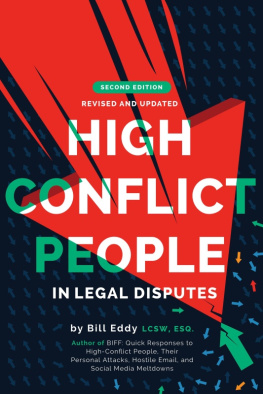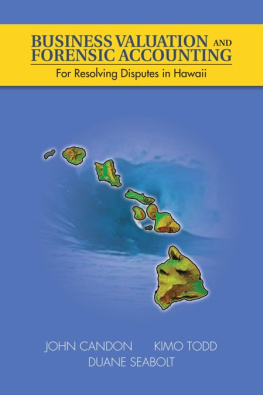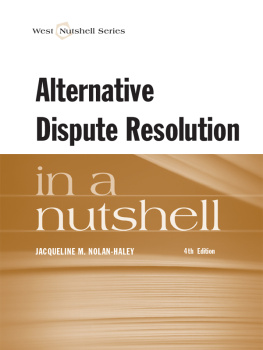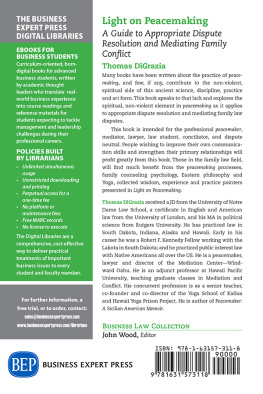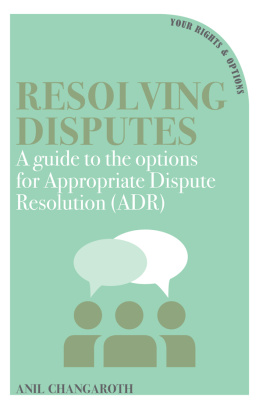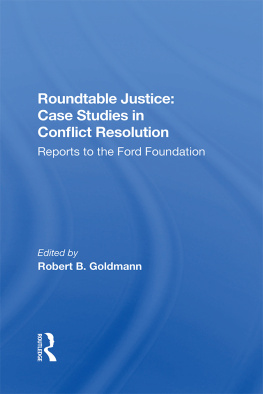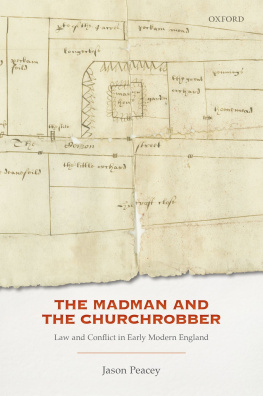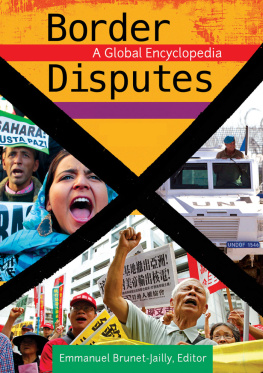SECOND EDITION
Settling Disputes
Conflict Resolution in Business, Families, and the Legal System
Linda R. Singer
First published 1994 by Westview Press
Published 2018 by Routledge
711 Third Avenue, New York, NY 10017, USA
2 Park Square, Milton Park, Abingdon, Oxon OX14 4RN
Routledge is an imprint of the Taylor & Francis Group, an informa business
Copyright 1990, 1994 by Linda R. Singer
All rights reserved. No part of this book may be reprinted or reproduced or utilised in any form or by any electronic, mechanical, or other means, now known or hereafter invented, including photocopying and recording, or in any information storage or retrieval system, without permission in writing from the publishers.
Notice:
Product or corporate names may be trademarks or registered trademarks, and are used only for identification and explanation without intent to infringe.
Library of Congress Cataloging-in-Publication Data
Singer, Linda R.
Settling disputes : conflict resolution in business, families, and the legal system / Linda R. Singer. 2nd ed.
p. cm.
Includes bibliographical references and index.
ISBN 0-8133-8655-1ISBN 0-8133-8656-X (pbk.)
1. Dispute resolution (Law)United States. I. Title.
KF9084.S57 1994
347.73'9dc20
[347.3079]
94-17711
CIP
ISBN 13: 978-0-8133-8656-0 (pbk)
Settling Disputes
Significant changes have taken place since the first publication of Settling Disputes, as alternative dispute resolution (ADR) increasingly has become part of the mainstream. Most dramatic have been the developments in the courts, in the federal and local governments, and in business. As a result, I have changed or updated much of the first edition.
My own professional life now is spent mediating large commercial, public, and employment disputes, with some time devoted to one-on-one mediations, lawyering, and teaching. Thus I am particularly grateful to Susan Horn, who ably assisted me in revising and updating the book, and to my law partner and agent, Gail Ross, who, as always, encouraged me to find the time to keep the book current.
Throughout the years, many colleagues and friends have shared with me their visions and their concerns about settling disputes. I could not possibly thank them all by name. I will mention only one here: my husband, comediator, coteacher, and closest colleague, Michael Lewis.
I also want to thank all the people who responded to the first edition and let me know that it had changed the way they practice their professions or handle their own disputes. I hope that this version of the book continues to inspire them and others like them.
Linda R. Singer
1
Origins and Growth of the Dispute Settlement Movement
A QUIET REVOLUTION IS TAKING PLACE in the methods Americans have available to them for dealing with conflict. Innovations, almost all of them fewer than fifteen years old, are being developed not only to settle disputes out of court, but to supplement or replace the processes used by legislatures to budget funds, by businesses to manage employees, by therapists to treat families, and by diplomats to respond to global crises. There also are new institutions and new methods for resolving conflicts, such as those between neighboring families or countries, that once could be dealt with only bv fighting it out with lawyers, with fists, or with armies.
From the beginning, America has been a nation of fighters, with a tradition of every manand sometimes womanfor himself. Our culture is permeated with the language of sportsand of war. Perhaps it is our history of bountiful land and ever-expanding frontiers. Perhaps it is the perceived opportunity to get rich within a single generation, unaided by family or community. Whatever the explanation, our tradition of individualism also has spawned a history of confrontation. Except for countries actively undergoing revolution, the United States has the highest incidence of violent crime in the world.
The way we deal with lawbreakers also reflects our frontier and individualistic heritage. Except for the former Soviet Union and South Africa, we lock up more people, for longer periods of time, than any other country in the world.
Our civil as well as our criminal courts have been heavily used throughout our history. The public perception of a litigation explosion is not new. De Tocqueville wrote 150 years ago, "Scarcely any political question arises in the United States that is not resolved, sooner or later, into a judicial question."
Early Americans distrusted lawyers. The Fundamental Constitutions of Carolina termed pleading a case for a fee "a base and vile thing." Vet there are many more lawyers in the United States today than in any other coun
Several developments have contributed to the public perception of a litigation explosion. Although the actual number of cases filed in state courts has grown only in proportion to population, both the number and complexity of disputes brought to court have increased during this century. Federal legislation designed to regulate business, to ensure civil rights, and, more recently to protect the public from hazardous products and polluted air and water all have contributed to a significant increase in the business of our federal courts. Whatever the reason, the number of civil suits filed in federal courts alone has nearly tripled since 1970. This trend has been exacerbated by the sharp upturn in the criminal matters brought to federal courts, which in many parts of the country makes it difficult to have civil claims heard at all.
The nature of the disputes litigated also has changed, from a predominance of private business and property cases to personal injury accident claims and cases involving products liability, domestic relations, criminal law, and government regulatory actions. With the creation of products such as asbestos insulation, Bendectin, and Agent Orange, which have the potential of injuring huge numbers of people, and the invention of legal techniques (especially class actions) for bringing large numbers of cases involving accident victims or injured workers or consumers to court at a time, court battles affect the lives of many more people than they once did They also require greater technical expertise. Demand for expert witnesses has increased markedly; witness brokers and clearinghouses can locate experts willing to testify on almost any subject. Despite the proliferation of new types of lawsuits, some of them with far-reaching implications, preliminary data from an ongoing study of federal litigation between 1971 and 1991 indicate that contract disputes among Fortune 1000 companies constituted the largest category of lawsuits filed in federal court.
When Americans must use the systemfor example, to handle corporate conflicts over substantial sums or personal problems such as accidents, discrimination, or divorcecourt or administrative action displaces our power over our own disputes. The legal process distorts reality; not only speed and economy but the real issues in dispute and the treatment of disputants by the professional dispute resolvers escape our control. Even top corporate managers feel as if their business problems take on a legal life of their own once they turn them over to lawyers and courts.


